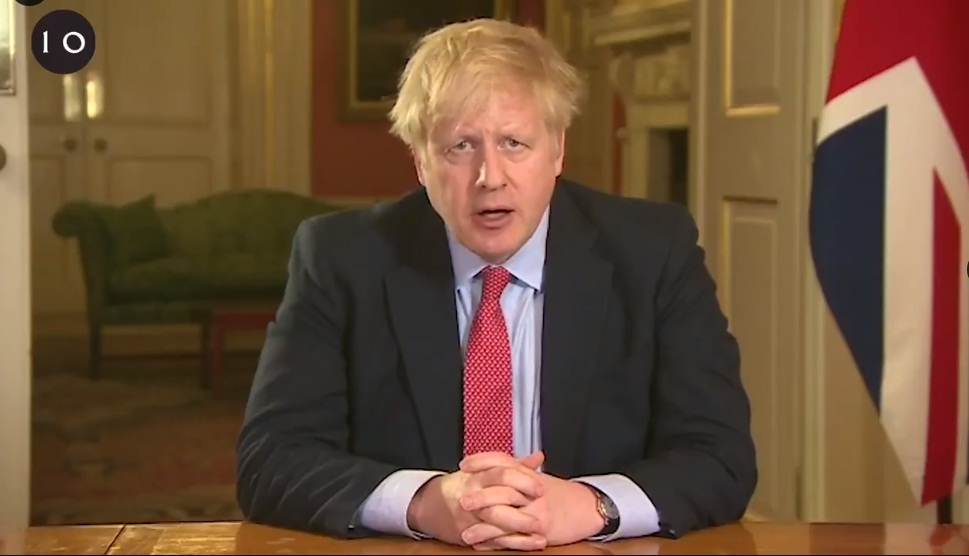The United Kingdom has gone into lockdown with Prime Minister Boris Johnson announcing strict new measures on Monday to battle the spread of the coronavirus.
In a televised statement, Johnson said that the UK was facing a "moment of national emergency".
He added that staying at home is necessary to protect the NHS, save lives and tackle the biggest threat the country has faced for decades.
"To put it simply, if too many people become seriously unwell at one time, the NHS will be unable to handle it – meaning more people are likely to die, not just from coronavirus but from other illnesses as well," he said.
The new measures come in the wake of people defying instructions to practice safe distancing and flooding beaches, parks and other public spaces over the weekend.
So what do the new measures entail:
- People can only leave their homes to shop for basic necessities like food and medicine and shopping trips should be as infrequent as possible. People should use food delivery services as much as possible
- People can only leave their houses for one form of exercise once a day, which is to be done either alone or only with people they live with
- People can leave their houses for a medical need or to provide care to a vulnerable person
- People can travel to and from work but only where absolutely essential and where work cannot be done from home
- People should keep a 2 metre distance between themselves and anyone they do not live with
- People should not meet friends nor any family members who do not live in the house
- All shops selling non-essential goods, including clothing and electronic stores and other premises including libraries, playgrounds and outdoor gyms, and places of worship to be closed. Parks to remain open for exercise but gatherings will be dispersed.
- All gatherings of more than two people in public places to be stopped
- All social events, including weddings, baptisms and other ceremonies, but excluding funerals to be stopped
Johnson also announced that the police will have the powers to enforce these rules, including through fines and dispersing gatherings.
Businesses that will not close include supermarkets, petrol stations, post offices and banks. Hotels, hostels, campsites and caravan parks will close except where key workers need to stay there, or if other people staying in these places are unable to return to their primary residence.
Community centres can stay open only for the purpose of "hosting essential voluntary or public services"
As of Monday the UK had over 6500 cases of COVID-19 with more than 300 deaths.



